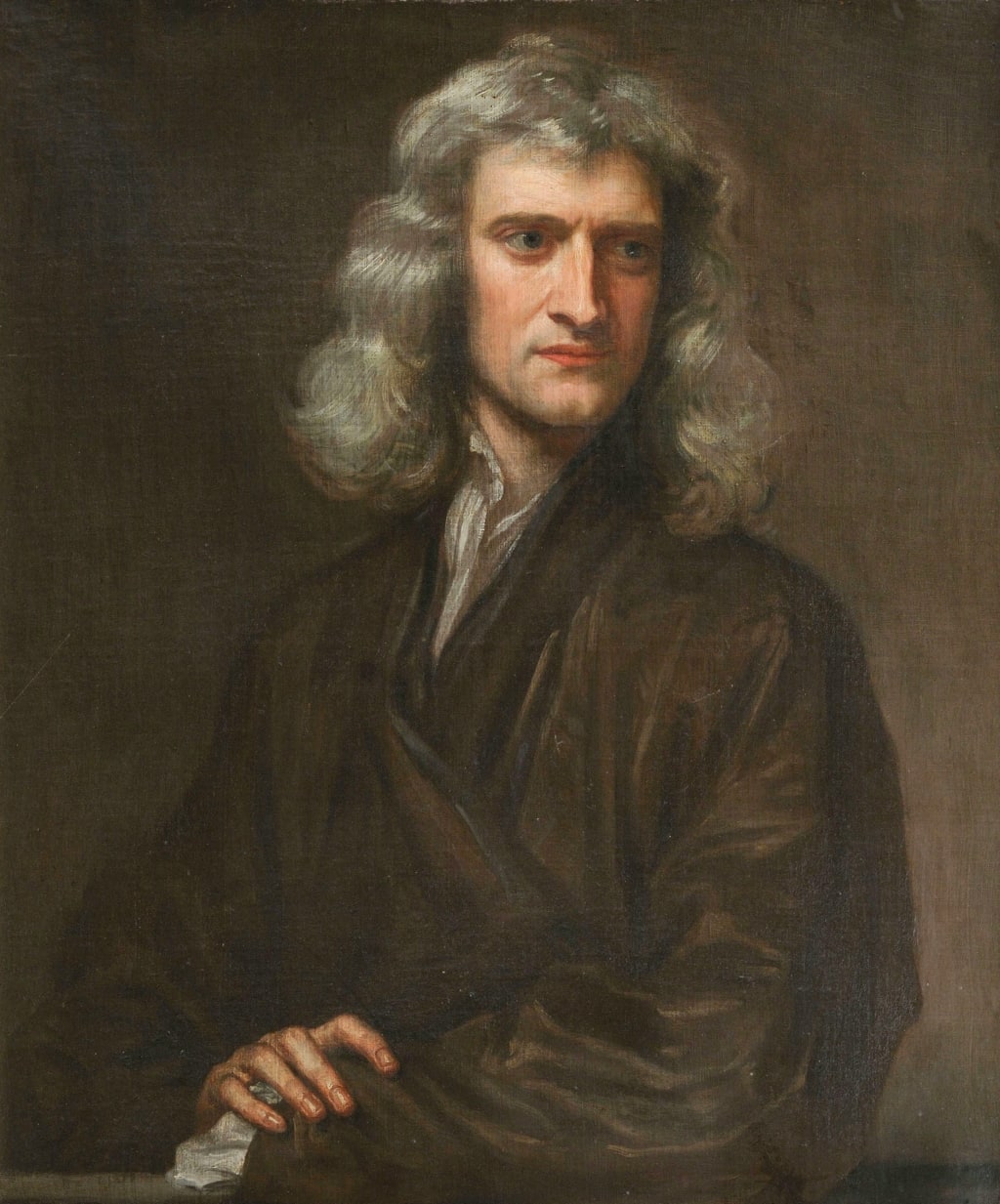
Sir Isaac Newton (1643-1727) was a prestigious English physicist, mathematician, and researcher who assumed a significant part in the Logical Unrest of the seventeenth hundred years. Here is a short outline of his set of experiences:
Early Life:
- Brought into the world on January 4, 1643, in Woolsthorpe, Lincolnshire, Britain, to a group of humble means.
- His dad, a yeoman rancher, kicked the bucket before Newton was conceived.
- Newton was a powerless and debilitated kid, however he showed major areas of strength for an and fitness for learning.
Instruction:
- Newton went to the nearby language school in Grantham, where he succeeded in arithmetic and science.
- In 1661, he signed up for Trinity School, Cambridge, where he concentrated on math and was profoundly impacted by crafted by Galileo and Kepler.
Significant Commitments:
- Newton established the groundwork for old style mechanics with his laws of movement and his hypothesis of general attraction, introduced in his weighty book "Philosophiæ Naturalis Principia Mathematica" (1687).
- He made critical commitments to the fields of optics, analytics, and cosmology.
- Newton was an individual of the Regal Society and filled in as its leader from 1703 until his passing.
Individual Life:
- Newton never wedded and carried on with a somewhat single life.
- He had areas of strength for an in speculative chemistry and scriptural prediction, and composed widely regarding these matters.
- Newton kicked the bucket on Walk 31, 1727, at his home in Kensington, Middlesex, and was covered in Westminster Nunnery.
Heritage:
- Newton's work significantly affected the improvement of science, arithmetic, and Western way of thinking.
- He is broadly perceived as perhaps of the most persuasive researcher ever, and his laws of movement and hypothesis of attractive energy stay central to current material science.
I trust this short history provides you with a feeling of Newton's momentous life and commitments! His weighty commitments include:
1. Laws of Movement: Newton formed three crucial regulations that portray how articles move and answer powers, establishing the groundwork for old style mechanics.
2. Widespread Attractive energy: Newton's law of all inclusive attraction expresses that each point mass draws in each and every other point mass by a power acting along the line converging the two focuses. This regulation made sense of planetary movement, tides, and the way of behaving of comets.
3. Analytics: Newton, alongside Gottfried Wilhelm Leibniz, created analytics, a part of science that arrangements with paces of progress and gathering. Analytics is essential for present day material science, designing, and financial aspects.
4. Optics: Newton's work on the idea of light and variety prompted his disclosure of the sythesis of white light and the improvement of the main down to earth telescope.
5. Principia Mathematica: Newton's most popular work, "Philosophiæ Naturalis Principia Mathematica" (Numerical Standards of Regular Way of thinking), distributed in 1687, presents his laws of movement, widespread attraction, and analytics, laying out another worldview for logical request.
Newton's effect on science and society is inconceivable. He laid the foundation for the Illumination, the Modern Unrest, and incalculable logical forward leaps. His inheritance keeps on rousing researchers, mathematicians, and scholars around the world.
A few fascinating realities about Newton:
- He was an individual of the Illustrious Society and filled in as its leader from 1703 until his demise.
- Newton was serious areas of strength for a for the logical technique and observation.
- He had major areas of strength for an in speculative chemistry and philosophy, composing widely regarding these matters.
- Newton never wedded and had no youngsters.
- He was knighted in 1705 for his administrations to science.Sir Isaac Newton's laws of movement, introduced in 1687, lastingly affect present day material science. These three regulations, which depict how articles move and answer powers, have formed how we might interpret the actual world and have various applications in different fields. Here are a portion of the critical effects of Newton's regulations on current physical science:
1. *Classical Mechanics*: Newton's regulations structure the underpinning of traditional mechanics, which is utilized to depict and foresee the movement of perceptible items, from shots to planets.
2. *Relativity*: Newton's regulations laid the basis for Albert Einstein's hypothesis of exceptional relativity, which upset how we might interpret reality.
3. *Quantum Mechanics*: Despite the fact that Newton's regulations are not straightforwardly material at the nuclear and subatomic level, they impacted the improvement of quantum mechanics, which depicts the way of behaving of particles at these scales.
4. *Astrophysics and Cosmology*: Newton's law of all inclusive attraction is critical for grasping the way of behaving of divine bodies, from the movement of planets to the development of the universe.
5. *Engineering and Technology*: Newton's regulations are fundamental for planning and advancing frameworks, like motors, gears, and mechanical frameworks, which are basic in different businesses, including aviation, auto, and mechanical technology.
6. *Particle Physics*: Newton's regulations are utilized to portray the way of behaving of particles in high-energy crashes, like those in the Enormous Hadron Collider.
7. *Computational Physics*: Mathematical strategies, like limited component techniques, are utilized to take care of issues in physical science and designing, depending on Newton's regulations to display and reproduce complex frameworks.
8. *Materials Science*: Understanding the way of behaving of materials under different powers and stresses is significant for growing new materials and advances, which is established in Newton's regulations.
9. *Biomechanics*: Newton's regulations are applied to figure out the development and mechanics of living organic entities, from the human body to cell movement.
10. *Fundamental Principles*: Newton's regulations have become essential standards, directing the advancement of new hypotheses and models, and keep on impacting research in current material science.
In synopsis, Newton's regulations lastingly affect current material science, forming how we might interpret the actual world, impacting the improvement of new hypotheses and innovations, and staying a foundation of traditional mechanics.
About the Creator
Enjoyed the story? Support the Creator.
Subscribe for free to receive all their stories in your feed. You could also pledge your support or give them a one-off tip, letting them know you appreciate their work.





Comments
There are no comments for this story
Be the first to respond and start the conversation.